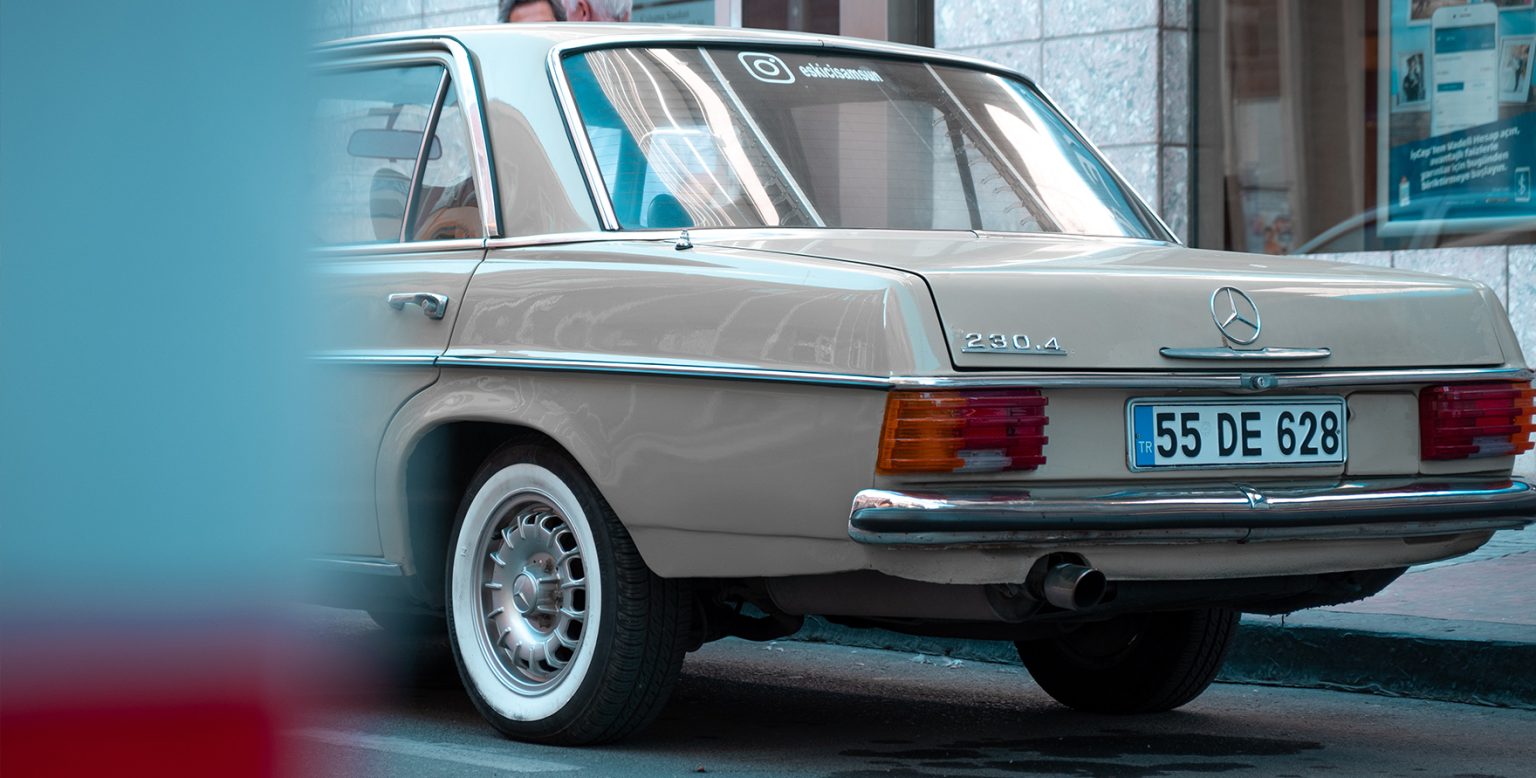Let’s get to the point straight away. A company car isn’t as profitable as you might think. You have to keep track of all your rides or you have to deal with additional tax liability, which would mean you have to make more expenses then the additional tax liability to even have an advantage. But we’ll get back to that later. You also have to determine whether or not your car is a company car for both income tax and VAT.
When to put a car on the business?
Simply put, business driving makes sense when the expenses you incur exceed the additional tax liability. Only in this way will you benefit. Incidentally, it is not the case that you will be at a direct disadvantage otherwise; the maximum additional taxable benefit you have to apply is never higher than the actual costs incurred. So you don’t have to compromise on it. But in the case of a high additional taxable benefit, it may be wiser to drive privately, because then you can enter costs in your administration per kilometer incurred. This benefit can often be higher.

Addition
The addition involves using a set amount to offset private use.
So on the one hand you give up expenses that reduce your profit and on the other hand there is an additional taxable benefit that increases your profit again. The same applies to VAT: on the expenses you incur you reclaim it and via the additional taxable benefit you pay back the VAT on private use.
There are two types of addition: an addition for income tax and an addition for sales tax (VAT). These are independent of each other and therefore you can choose to use the car for income tax purposes, but not for sales tax purposes.
For both situations you can calculate what is most advantageous in your case.
This choice is binding and can only be made once: at the start of your business or when you purchase the car. It is therefore important that you weigh all options carefully before making your choice.
Income tax
When 90% of the kilometres you drive are for busines, then you’ll have declare your car as a company car for income tax. Do your business rides only make up for 10% or less of your rides, then you’re not allowed to declare it as a company car. For everything in between, you’re given a choice. Almost all entrepreneur car owners are in this category. Your choice is binding and you can decide only once; when you start your company or when you buy the car. It’s important to weigh your options before you decide.
1. Your car is not a company car
Less then 10% of your kilometres are business or less than 90% of your kilometres are busines, but you choose not to declare your car as a company car. In this case you can add €0,23 for each business kilometre to your costs. A popular choice for a lot entrepreneurs. You don’t have to take added tax liability into account and there’s a tax benefit of € 0,23 for each business kilometre. The only thing you have to keep track of are the business kilometres you drive.

2. You do use the car for business purposes and drive more than 500 kilometers privately per year
In this case, you may report all car expenses incurred in your administration and you will be subject to an additional taxable benefit. For cars up to 15 years old, the standard addition applies. This is 22% of the list value for almost all cars. For cars older than 15 years, the so-called youngtimer, other rules apply. The addition is not calculated over the catalog value, but over the current value of the car. This addition is 35%.
Fully electric cars will be subject to an additional tax rate of 16% up to a value of €30,000 in 2023.
Above that, the regular rate of 22% will apply.
By declaring the car as a company car you will have a tax benefit, because you can declare all your car costs as business costs and you don’t have to take added tax liability into account. You do however have to record some extra data. The Belastingdienst will not just take your word for it. You’ll have to have bulletproof records about the rides you make in your company jalopy. Here’s a short summary of the minimum you need to register in your Excel file for each ride:
- Date
- Start and end figure odometer
- Departure and arrival address
- The route you took if it’s not the most common one
- Private use or business use
- The kilometres for private use when the ride combined private and business use
VAT
For VAT you’ll have to decide as well whether or not to declare your car as a company car. There are roughly three options: all business use, partially business with records and partially business without records.
1. All business
The company has to be declared as a company car when you drive less than 500 kilometres for private use. In this case you can get a tax return for paid VAT for all car expenses. Unlike income tax, VAT considers all kilometres from home to work as private kilometres
2. Partially business with records
When you thoroughly record the kilometres you drive for both business and private use and you can back it up with proof of your mileage at the beginning and the end of the year, then you are allowed to request a tax return for the VAT of your car expenses by the same ratio of the business kilometres and the total of kilometres you’ve driven.
3. Partially business without records
If you’re not into keeping records of your business and private kilometres, you can choose to apply the added tax liability. If you paid VAT when you bought the car, then your added tax liability is 2,7% of the list value. If you didn’t pay VAT when you bought the car (a so called margin car), for instance because you bought a second hand car through www.marktplaats.nl then the added tax liability is 1,5%.

Determining whether or not to declare your car as a company car
There are a couple of important questions you should ask yourself before deciding to declare your car as a company car.
- How many kilometres will you drive for business use and for private use?
- What kind of car are you driving? Model year? Fuel or electric?
- What’s the list value of your car?
- Do you expect to have a lot of car expenses on a yearly basis?
- Do you want to keep a record of all the rides you make?
With this information you can roughly decide what situation suits you best for both the income tax and VAT. It simply comes down to the fact that a company car is only profitable when you either drive less than 500 kilometres in private use or: when your added tax liability is lower than the car expenses you have. Besides that it’s important to check if it isn’t more profitable to just declare the €0,23 for each business kilometre you drive. It might save you a lot of time and headaches.


